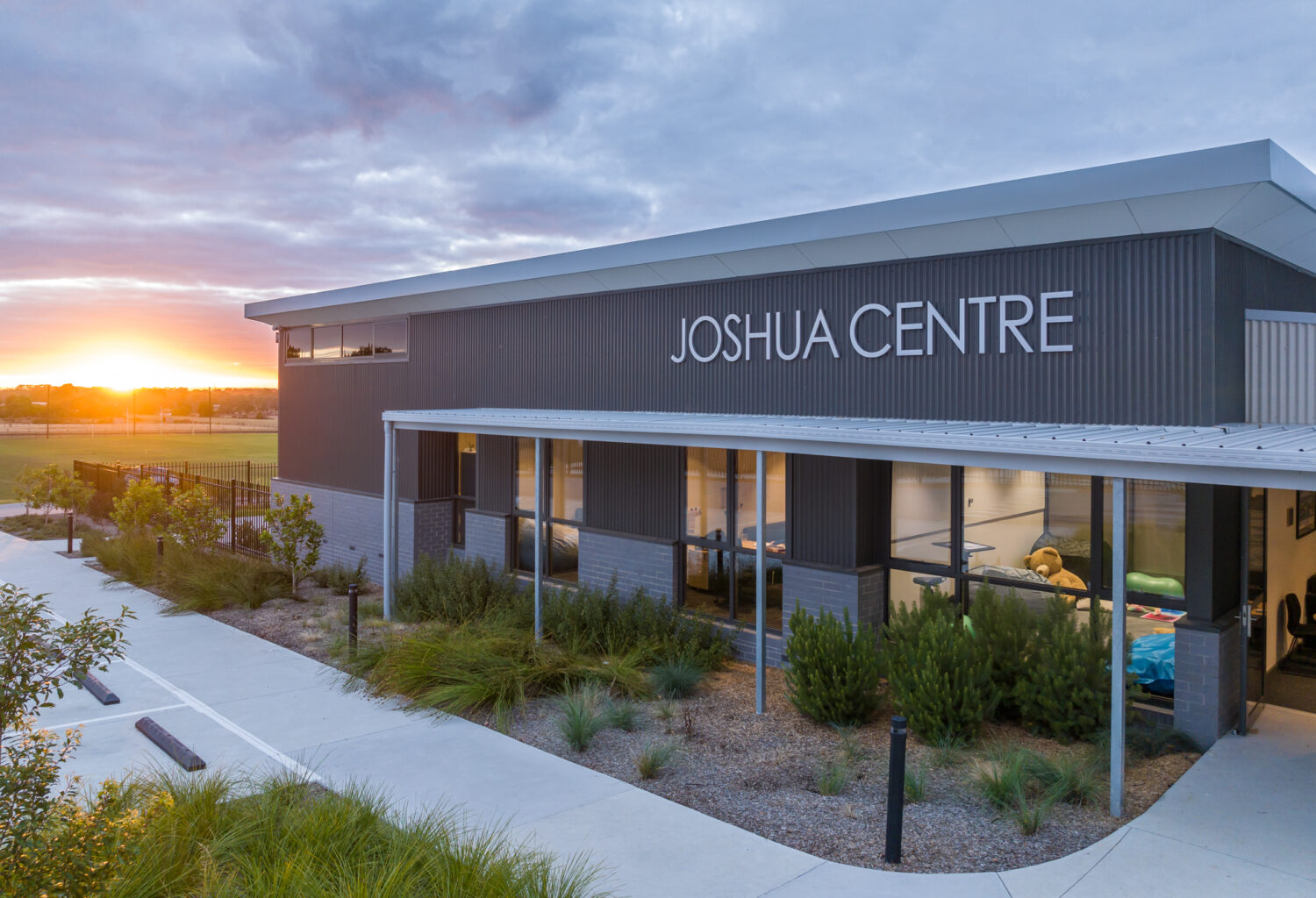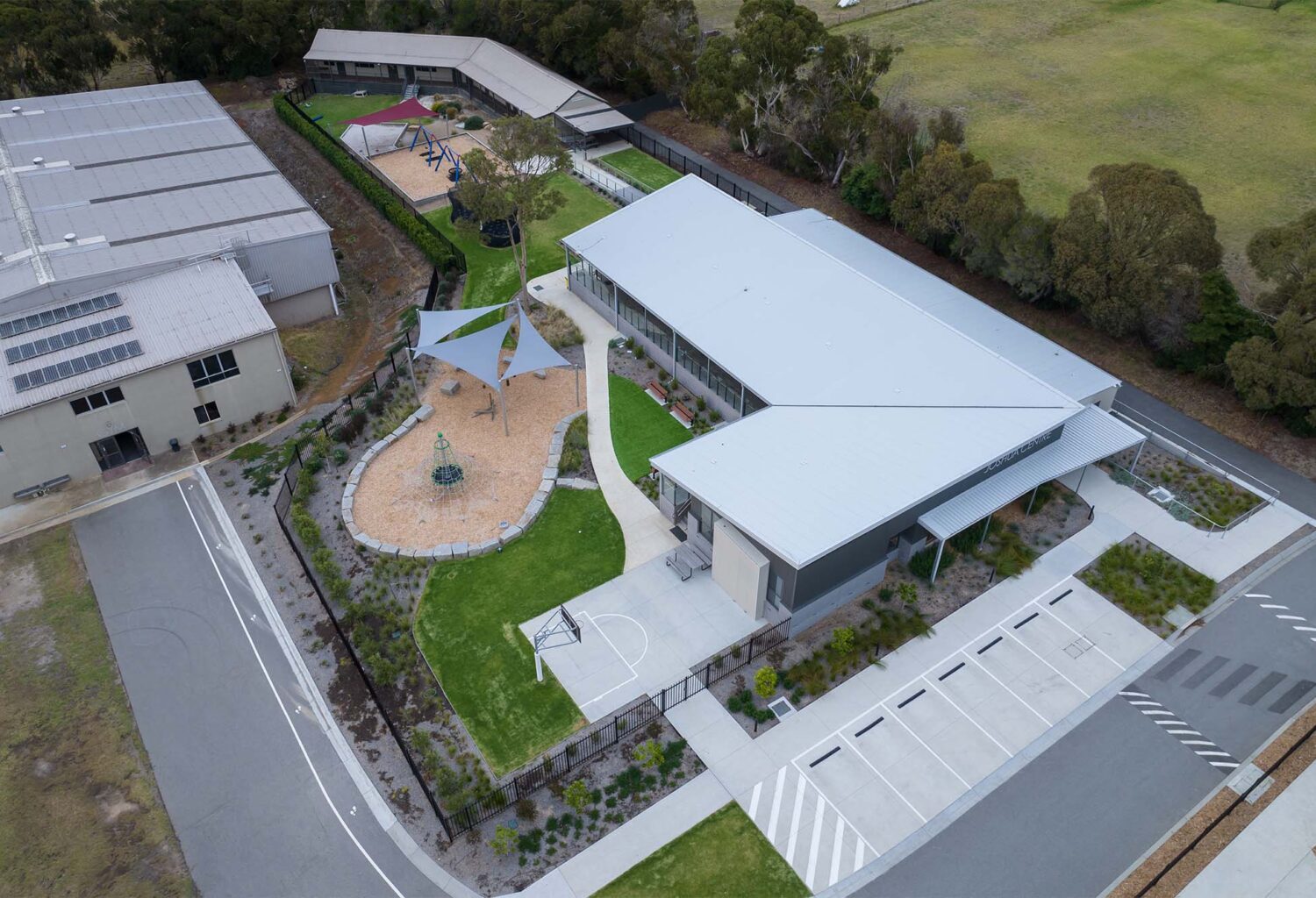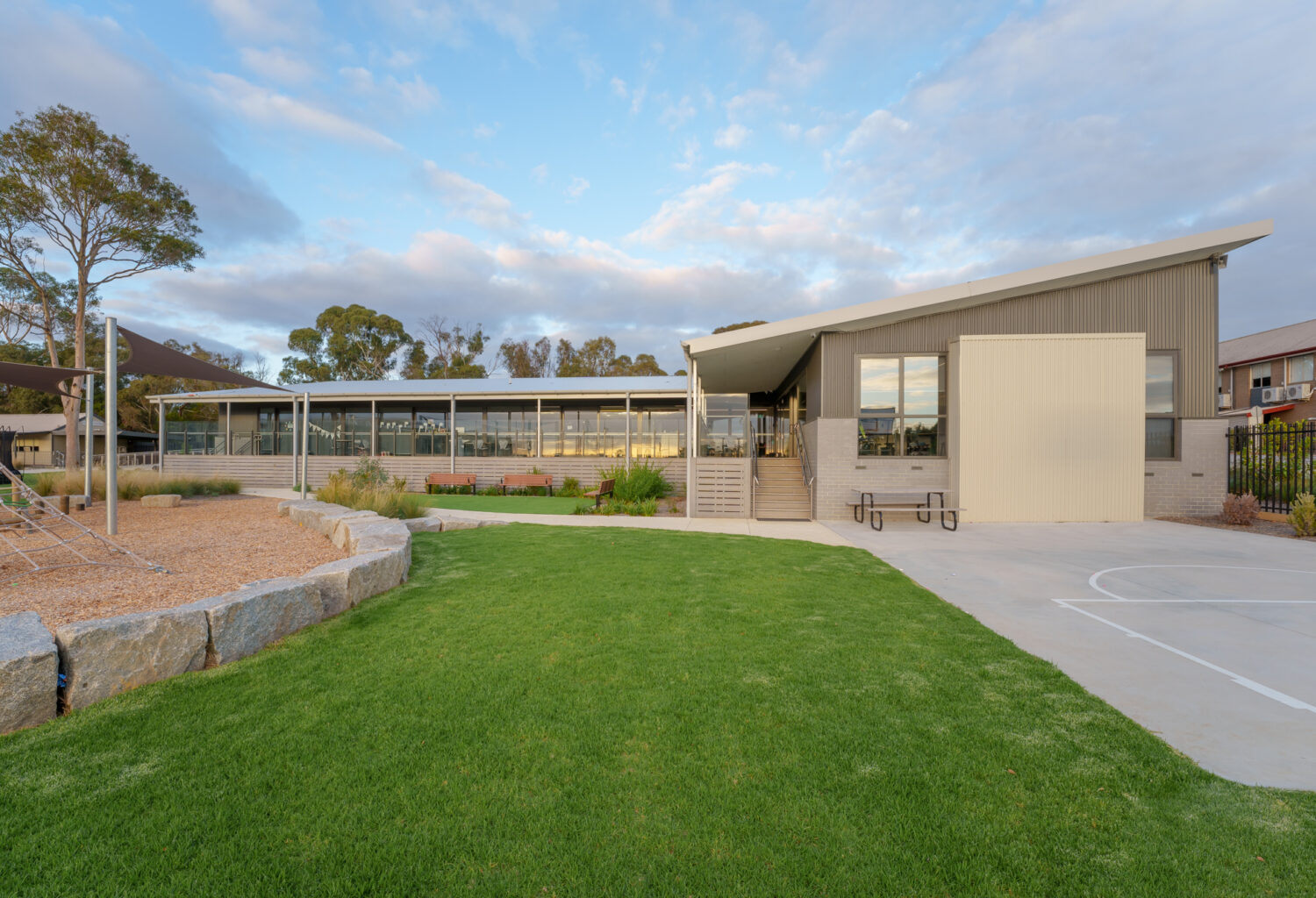Leading Inclusive Practice
Lessons from Flinders Christian Community College on Supporting Neurodiverse Learners

In 2022, Flinders Christian Community College established the Joshua Centre at its Tyabb Campus, a purpose-built facility designed to support autistic students. The Centre provides a tailored learning program and environment that is responsive to sensory needs and structured routines, enabling students to thrive. Hear directly from Joshua Centre Director, Christy McLindon, as she shares how the Centre operates and supports its students.
How are students assessed and selected for placement in the Joshua Centre?
Students are assessed and selected for placement at the Joshua Centre through a collaborative process that involves reviewing various reports submitted during the enrolment process, as well as consulting with the student’s family, current school, and external support team. Families are asked to provide autism and cognitive assessment reports, along with specialist reports detailing any co-occurring diagnoses. The Joshua Centre team carefully evaluates the information in these reports, including the student’s learning profile from the cognitive assessment, to ascertain if the level of support offered aligns with the student’s individual needs.
What specific strategies or tools are used to create and deliver the differentiated learning programs?
To create and deliver differentiated learning programs, we utilise a variety of tools and strategies. These include diagnostic reports from external specialists, input from parents and previous school interviews (which provide valuable insights into triggers, strategies, and student interests), academic assessments, and ongoing observations of the student’s progress. This information is used to develop a dynamic, individualised learning plan, which is regularly updated throughout the year to ensure that the instructional approach remains responsive to the student’s evolving needs.
How is integration into mainstream classes managed, and what support is provided during these transitions?
Integration into mainstream classes is carefully planned and supported to promote inclusion and student success. Joshua Centre students participate in specialist subjects such as Physical Education, Agriculture, Ceramics, Art, Food Technology, and Wood Technology within the primary and secondary mainstream campuses.
Some students also integrate into mainstream classes for core subjects like Literacy or Numeracy, based on individual readiness and learning goals. These transitions are collaboratively planned with families and are initially supported by a Joshua Centre aide. Support is gradually reduced as the student builds confidence and independence in the mainstream environment.
What training or qualifications do the staff have in autism education and supporting neurodiverse learners?
Our staff bring a diverse range of qualifications and experience in supporting neurodivergent learners within educational settings. All team members complete training in Positive Behaviour Support, which includes understanding behaviour as communication and implementing de-escalation techniques. Additionally, staff undergo specialised training in areas such as autism education, ADHD classroom management, and the Zones of Regulation for social-emotional support, among other relevant courses.
Many staff members have personal experience with neurodivergence within their families, which enhances their understanding and empathy. Above all, our staff share a deep passion for supporting autistic learners and are committed to continuous professional development to ensure they are equipped to meet the needs of all students.

How is collaboration with Allied Health Professionals structured and monitored for effectiveness?
At the Joshua Centre, students are typically supported by an existing network of external Allied Health Professionals, including paediatricians, occupational therapists, behavioural support practitioners, speech pathologists and psychologists. These professionals often have well-established relationships with the students and their families.
We actively encourage Allied Health Professionals to conduct sessions onsite at the Joshua Centre, and we provide dedicated spaces to support this collaboration.
Our multidisciplinary support model is further strengthened through regular collaboration between the Student Welfare Officer, the Dean of Teaching and Learning, classroom teachers, and the external Allied Health team. This coordinated approach ensures that students receive comprehensive and responsive support tailored to their individual needs.
What measurable outcomes are used to evaluate student progress in academics, social connection, and well-being?
Student progress is evaluated using a combination of quantitative and qualitative tools aligned with each student’s Individual Learning Plan (ILP) and the goals established through their Student Support Group (SSG).
Academic progress is monitored through adjusted Victorian Curriculum levels across learning areas. Specific and measurable goals are set within each student’s ILP, and where appropriate, standardised assessments and internal school-based assessments are used. Work samples and student portfolios also provide evidence of skill development and academic growth over time.
All aspects of student progress are reviewed regularly through SSG meetings, which are held at least once per term. These meetings ensure that data is reviewed collaboratively with families and professionals to guide ongoing support and planning.
What considerations went into the design of the new building and sensory-friendly spaces, and how do these impact student learning?
The design of the Joshua Centre’s new building and sensory-friendly spaces was guided by the goal of creating a calm, predictable, and autism-friendly learning environment. Classrooms are purpose-built with features that support sensory regulation, including noise-absorbing ceilings, natural lighting, structured workstations, and quiet areas. Each room is designed for small groups of 8 to 12 students, with class sizes adjusted based on the collective support needs of the cohort.
Learning spaces incorporate dedicated calming areas, visual supports to help students navigate their daily routines. This flexibility allows students to choose how they engage in learning, promoting comfort, movement and autonomy. The physical environment plays a key role in supporting student well-being, emotional regulation, and engagement, and reflects our broader commitment to responsive, student-centred education.
The outdoor play space at the Joshua Centre has been thoughtfully designed to support the sensory, social, and physical development of autistic learners. Trampolines and swings provide valuable vestibular and proprioceptive input, which can help regulate sensory systems, reduce anxiety, and improve focus. The sandpit offers opportunities for tactile play, creativity, and calming sensory exploration in a low-demand setting. The basketball court supports gross motor development and encourages cooperative play and social interaction, while also offering space for students who prefer more structured physical activity.
Can you share a story of a student who has successfully participated?
A Grade 3 student enrolled at the Joshua Centre in 2024, after experiencing 18 months of complete school refusal. He has a diagnosis of Level 2 Autism, along with ADHD, generalised anxiety, selective mutism, and a PDA (Pathological Demand Avoidance) profile. When he first began, he was highly anxious and sensitive to sensory input—for example, he would only wear thongs to school due to discomfort with closed shoes.
Since starting at the Centre, he has made remarkable progress. He now attends school full-time, wears appropriate footwear during specialist classes, and participates fully in all learning activities. Socially, he has developed two strong friendships and is increasingly confident in communicating, speaking freely in most settings. Academically, after 18 months without formal education, he is now working at standard level in numeracy and writing, and is rapidly closing gaps in his reading. His story reflects the impact of a tailored, supportive environment on student engagement, well-being, and learning outcomes.

For more information
Flinders Christian Community College is an Independent, co-educational, interdenominational Christian school offering education from Kindergarten to Year 12. With an open and inclusive enrolment policy, the College welcomes students from both Christian and non-Christian backgrounds across its campuses in Carrum Downs, Mt Martha, and Tyabb.
Visit the school’s website.
